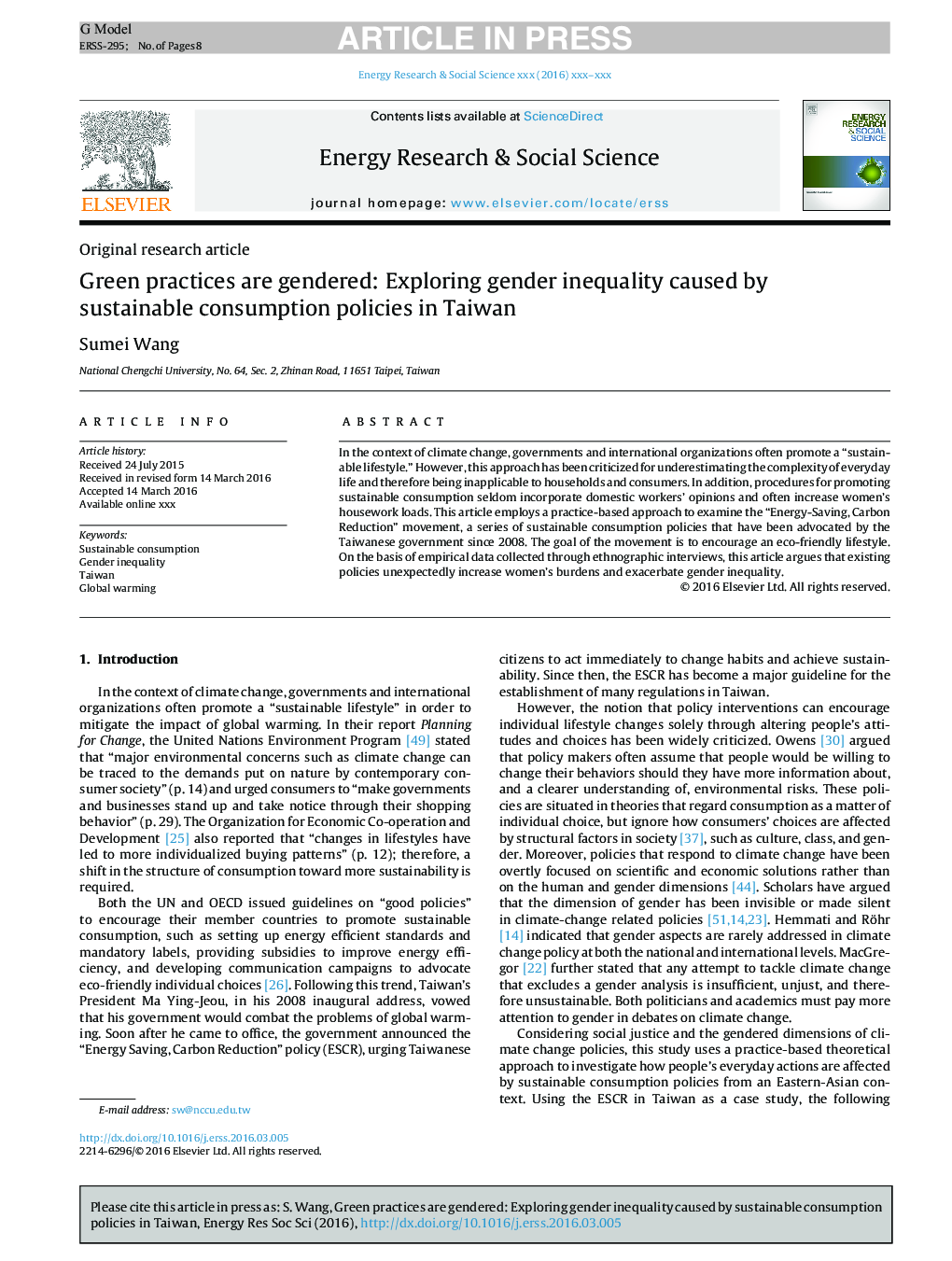| Article ID | Journal | Published Year | Pages | File Type |
|---|---|---|---|---|
| 6557995 | Energy Research & Social Science | 2016 | 8 Pages |
Abstract
In the context of climate change, governments and international organizations often promote a “sustainable lifestyle.” However, this approach has been criticized for underestimating the complexity of everyday life and therefore being inapplicable to households and consumers. In addition, procedures for promoting sustainable consumption seldom incorporate domestic workers' opinions and often increase women's housework loads. This article employs a practice-based approach to examine the “Energy-Saving, Carbon Reduction” movement, a series of sustainable consumption policies that have been advocated by the Taiwanese government since 2008. The goal of the movement is to encourage an eco-friendly lifestyle. On the basis of empirical data collected through ethnographic interviews, this article argues that existing policies unexpectedly increase women's burdens and exacerbate gender inequality.
Related Topics
Physical Sciences and Engineering
Energy
Energy (General)
Authors
Sumei Wang,
